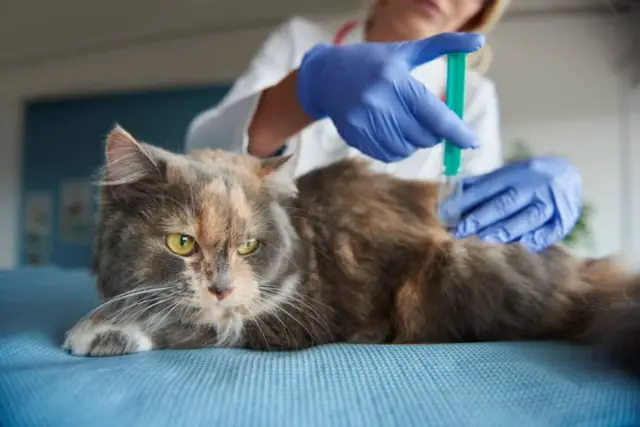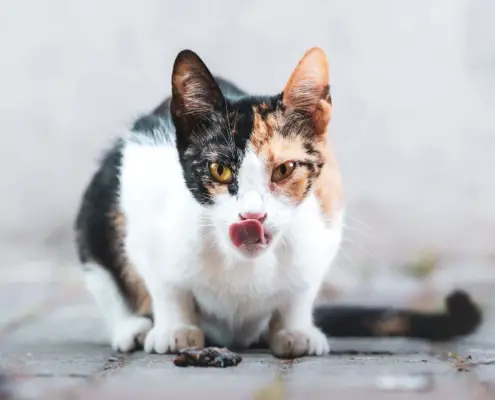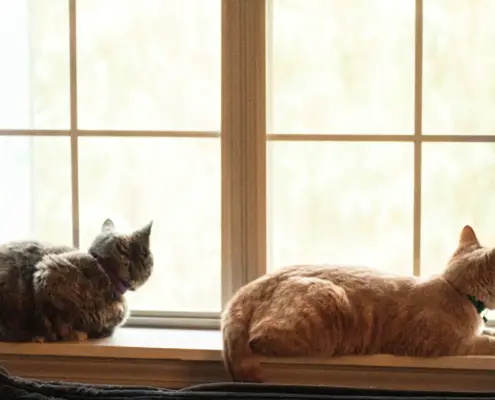
Respiratory issues in cats can be a cause of concern for pet owners. Just like humans, cats can also experience difficulties with their breathing. Whether it’s a minor sniffle or a more serious condition, it’s important to be able to recognize the signs and symptoms of respiratory issues in cats. By understanding the causes, diagnosing the problem, and seeking appropriate treatment, you can help your feline friend breathe easy once again.
Common respiratory issues in cats
Cats can suffer from a variety of respiratory issues, ranging from mild to severe. One common respiratory issue is feline upper respiratory infection (URI), which is similar to the common cold in humans. Symptoms of URI include sneezing, coughing, runny nose, and watery eyes. Another condition is feline asthma, which is characterized by wheezing, difficulty breathing, and coughing. Other respiratory issues in cats may include bronchitis, pneumonia, and nasal polyps.
Recognizing the signs and symptoms of respiratory issues
Recognizing the signs and symptoms of respiratory issues in cats is crucial in order to provide timely care and treatment. Cats with respiratory issues may exhibit symptoms such as coughing, sneezing, wheezing, difficulty breathing, nasal discharge, and rapid breathing. They may also show signs of decreased appetite, lethargy, and weight loss. If you notice any of these symptoms in your cat, it’s important to monitor them closely and consult with your veterinarian.
Understanding the causes of respiratory issues in cats
Respiratory issues in cats can have various causes. Viral and bacterial infections, such as the feline herpesvirus or calicivirus, are common culprits of respiratory problems in cats. Environmental factors, such as exposure to smoke or dust, can also contribute to respiratory issues. Allergies, asthma, and underlying health conditions can further worsen respiratory problems in cats. Understanding the potential causes can help in preventing and managing respiratory issues in your feline companion.
Diagnosing respiratory issues in cats
Proper diagnosis of respiratory issues in cats requires a thorough examination by a veterinarian. The veterinarian may perform a physical examination, listen to the cat’s breathing using a stethoscope, and ask for a detailed medical history. Additional diagnostic tests, such as blood work, X-rays, and cultures, may be necessary to identify the underlying cause of the respiratory problem. Once a diagnosis is made, appropriate treatment options can be recommended.
Treatment options for respiratory issues in cats
The treatment of respiratory issues in cats depends on the underlying cause and severity of the condition. For viral or bacterial infections, medications such as antibiotics or antiviral drugs may be prescribed. In cases of feline asthma, bronchodilators and corticosteroids may be used to alleviate symptoms and reduce inflammation. Other treatment options may include oxygen therapy, nebulization, and supportive care to help the cat breathe more easily. It’s important to follow the veterinarian’s instructions and complete the full course of treatment for optimal results.
Preventing respiratory issues in cats
Prevention is key when it comes to respiratory issues in cats. Keeping your cat’s environment clean and free from irritants, such as smoke or strong odors, can help reduce the risk of respiratory problems. Regular vaccinations, especially for viral diseases like feline herpesvirus and calicivirus, can also help prevent respiratory infections. Maintaining a healthy diet and promoting exercise can also contribute to a strong immune system, which can help prevent respiratory issues in cats.
Maintaining a healthy respiratory system for your cat
In addition to preventive measures, there are several ways to maintain a healthy respiratory system for your cat. Regular grooming, including brushing and cleaning the cat’s nose and eyes, can help remove allergens and reduce the risk of respiratory issues. Providing a clean and well-ventilated living environment is also important. If your cat is prone to respiratory problems, your veterinarian may recommend supplements or medications to support respiratory health. Consulting with your veterinarian about the best practices for maintaining a healthy respiratory system for your cat is essential.
When to seek veterinary care for respiratory issues
While some respiratory issues in cats may resolve on their own, it’s important to know when to seek veterinary care. If your cat is experiencing severe difficulty breathing, persistent coughing, or shows signs of distress, immediate veterinary attention is necessary. Additionally, if the symptoms persist or worsen over time, it’s important to consult with your veterinarian. Early intervention and proper treatment can greatly improve the outcome for cats with respiratory issues.
Conclusion
Respiratory issues in cats can be a cause for concern, but with proper knowledge and proactive care, you can help your cat breathe easy. By recognizing the signs and symptoms, understanding the causes, and seeking timely veterinary care, you can alleviate respiratory issues and improve your feline companion’s quality of life. Remember to follow your veterinarian’s advice and take preventive measures to maintain a healthy respiratory system for your cat. With your love and attention, your cat can enjoy a life of easy breathing and good health.
If you enjoyed my article, I would appreciate you sharing it with your network.

Sima Ndlebe
Sima writes for CatBuzz. He is interested in Cats, Health and Fitness, and Entrepreneurship.
Published: 11 October 2023
Related Articles
Disclaimer
The content found on CatBuzz.org is presented on an "as is" basis and is intended for general consumer information and education purposes only. Any utilization of this information is voluntary and solely at the user's own risk.
None of the articles or content should be regarded as, or used in place of, veterinary medical advice, diagnosis, or treatment. The information provided on the website is purely for educational and informational intentions and should not be considered a substitute for professional guidance from a veterinarian or other qualified expert. The articles are designed to inform consumers about veterinary healthcare and medical matters that may impact their cat's daily life. It should be noted that this website and its services do not constitute the practice of any form of veterinary medical advice, diagnosis, or treatment. CatBuzz.org explicitly disclaims any liability for any direct or indirect damages or losses that may arise from the use of or reliance on the information contained within the content.
Consumers must consult a veterinarian, veterinary specialist, or another qualified veterinary healthcare provider when seeking advice regarding their cat's health or medical conditions. It is important not to ignore, avoid, or postpone seeking medical advice from a veterinarian or other qualified veterinary healthcare provider solely based on information obtained from this website. If you believe that your cat may be experiencing a medical issue or condition, it is imperative to promptly contact a qualified veterinary healthcare professional.



